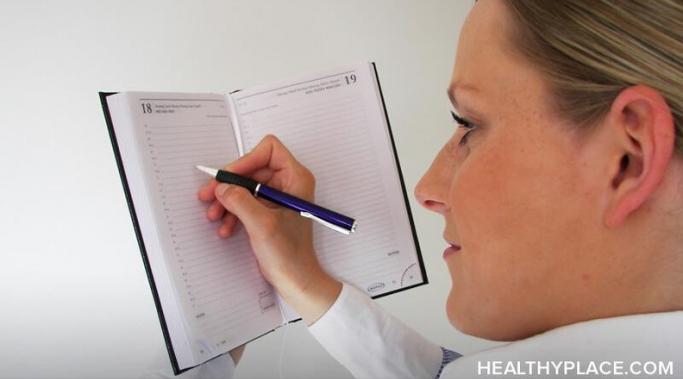Blogs
Life after abuse surpasses the definition of peaceful. There is no one but me to tell me what to do or how to do it.
On Twitter a follower asked me about a specific side effect of a medication. She was considering taking the medication and was worried she might suffer from this side effect. This is a reasonable concern and it’s good that she’s researching the drug's effects and possible problems ahead of time.
But the thing is, while knowing about the possibilities is good, worrying about the possibilities is pretty useless. You won’t know if you will get the side effect unless you actually try the drug. The only way to know what is going to happen is to roll the dice.
This is not, in any way, a political statement but--YES, we can! Of course we can accomplish goals when living with a mental illness! Why not? We have brains that work and bodies that move. But accomplishing, or even setting goals when you live with a mental illness can be difficult. It can be difficult when we don't feel great. But we can turn this difficulty into a positive--yes--a positive experience!
It has been nearly three weeks since my last of six ECT treatments. And I feel great! ECT (Electroconvulsive Therapy) may be the most controversial treatment that exists for mental illness. In my case, it was severe depression that did not respond to antidepressants and talk therapy.
In the last post, I wrote about my fear that I will damage (or kill) any healthy relationships I now enjoy due to my inability to trust the ones who deserve it. I mentioned that it is much easier for me to trust a stranger than my lover, but that dilemma is, I think, easily explained: strangers on the street do not have intimate knowledge of who I am that they could use as a weapon. Strangers may use a gun, but that type of killing is not the one I fear.
"I don’t need help! I don’t need antidepressant medications. I don’t need counseling. I just need more will power.”
It is a myth that people can relieve their depression by just trying harder to “get over it”. Yes, negative thinking can make it worse and positive thinking can help. And yes, it is “normal” to get depressed sometimes. So what is the difference between a normal reaction to something and having depression that needs intervention?
I recently returned from a trip to Chicago. I was at the National Council’s Conference on Addiction and Behavioral Health. I had a great time and met lots of great people (including our own Randye Kaye, author of Mental Illness in the Family here at HealthyPlace).
But the conference was in Chicago, and while a great city, it did mean a day’s worth of travel and two time zone changes to get there. And travel has been known to really take it out of me.
But I have learned tips for navigating travel with less disruption to my bipolar disorder.
[caption id="attachment_794" align="alignleft" width="170" caption="Senator Tom Daschle Delivered an Inspiring Keynote - including an encouraging answer to my question about the Value of Personal Stories to Healthcare Reform!"][/caption]
What a week! Had the privilege of speaking with behavioral healthcare providers and more at the 2012 National Council Conference in Chicago. I not only got the chance to share our family story - from chaos to recovery - in a session, but I also got to meet Healthy Places' Breaking Bipolar Blogger, Natasha Tracy in person, attend her session "To Blog or Not to Blog", and share some amazing tapas with her at an Iron Chef restaurant! Natasha is a wonderful writer, and amazing person. We had a great time.
The education track for my presentation was called "Personal Stories of Recovery." But it can't just stop with the story. We tell our stories of mental illness for a purpose...and, in this case, I asked the group to note, as they listened, which provider actions worked to help my son, Ben, and our family through crisis to recovery, and which did not (or even made things worse).
Here is the "Top Ten List" that was the take-away:
Trust eludes victims of abuse during their abusive relationship. As much as I wanted to trust my ex-abuser--and told others that I could trust him--it just wasn't so (Trust Issues and Abusive Relationships). I thought if I was trustworthy and expected to be able to trust him, then he would magically become trustworthy and our relationship would spring to life. That never happened because you cannot ever trust an abuser with your heart. But you can learn to trust after your abusive relationship.
Hi, my name is Amie Merz and I'm glad to be teaming up with Jack Smith on this blog and sharing my thoughts, knowledge and experience on coping with depression. I am a counselor in private practice (my credentials: MA, LPC, NCC, CASAC, ICAADC, SAP) in a rural area south of St. Louis, MO. in the United States. I have worked in the mental health field since 1991, with all age groups, income levels, issues and dynamics. I have learned that mental illness does not discriminate; so many people have been affected by it. My hope is that the negative stigma of getting help can continue to fade away so we can help more people feel better.









